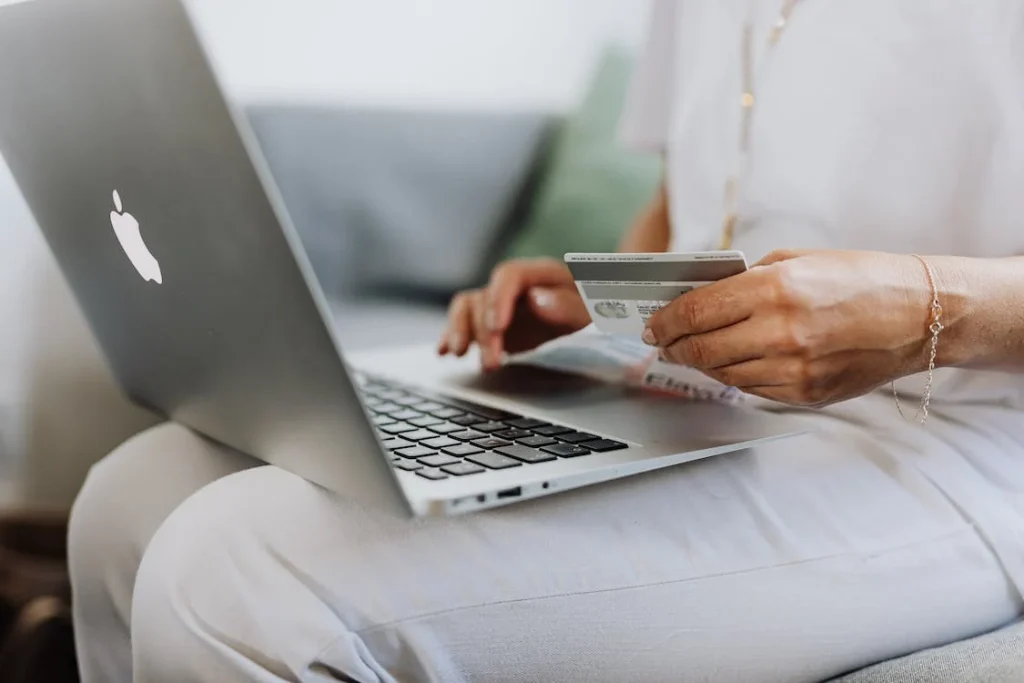It’s now easier than ever before to open an online bank account. Mobile apps let you manage your finances easily and access to a huge ATM network even without traditional bank branches – enable you to withdraw cash in a matter of minutes. This guide will provide you with the benefits, requirements and steps to transform your banking experience into a digital age.
Understand Your Banking Needs
The determination of your banking needs is the first step to selecting the best bank account. Are you searching for a secure location to deposit your pay cheque or withdraw cash, as well as manage your expenses? Then a checking account could be the perfect solution. It’s a fantastic tool for daily transactions, offering features such as checking out, debit card access as well as the capability to set up direct deposit.
In addition, if you have an objective in mind for your finances such as saving for an investment or setting up an emergency fund or emergency fund, an savings account can be helpful. Savings accounts generally offer higher rates of interest than checking accounts, which allows your savings to grow more quickly over time.
Many people have both savings and checking accounts, typically with the same financial institution or technology company. The checking account functions as a central point for daily transactions and the savings account acts as a storage space for long-term saving and investing goals. You might be interested in CDs or money market accounts for savings over the long term. The specific mix you choose is dependent on your individual financial goals and needs.

Choose the Right Bank
The choice of a bank is contingent on your personal requirements and preferences. There are three types of banks you should consider including traditional banks, credit unions and online banks.
Traditional banks provide a variety of services including various kinds of credit cards, accounts, and loans. They are a great option if you prefer in-person access to services and a wide range of ATMs.
Credit unions are owned by members and usually provide excellent customer service. They typically offer higher rates of interest on savings accounts, however they might be less accessible online and in physical access than traditional banks.
Banks online operate solely online, which enables them to provide lower fees and more lucrative interest rates. They’re a good option when you’re comfortable with conducting all your banking online. They typically use nationwide ATM networks to provide quick access to your cash.
Whatever bank you pick, be sure that it’s FDIC-insured to safeguard your funds. Also, think about the fees charged by the bank that are charged monthly, like the maintenance charge, overdraft fees and ATM charges, as they can mount up over time. A bank that has fewer fees or options to eliminate them could save you money.
Know the Requirements for Opening a Bank Account Online
Once you’ve chosen your banking needs and bank you’re using, it’s the now time to gather the required information to create your account online with your bank.
The majority of financial institutions will need:
- Personal Information: Your legal name and date of birth as well as your Social Security number.
- Contact Information: A valid mailing address and a phone number. Most banks require these to confirm your identity and are part of their security and communication protocols.
- Identification: A valid form of identification like driver’s license, state ID or passport. You may be required to show the ID number as well as an expiration date.
- Initial Deposit: A few banks will require an initial payment to establish the account. It is usually possible to make this deposit by transferring money from an existing account, or using an debit or credit card. There are many online banks that do not require a minimum deposit to open however, they will require you to fund your account within 30 days of opening.
Before starting, it’s important to know the requirements of the bank you’ve selected as requirements can differ between financial institutions. the next.

Step-by-Step Guide on How to Open a Bank Account Online
The idea of banking online can be a bit daunting at first. However the process is generally easy and takes just the time of a few minutes. Follow this step-bystep guide to establish an online account for your bank.
- Check out the bank’s site: Begin by visiting the official website of your institution, such as a credit union or bank. Search for the “Open an Account” or “Apply Now” option, usually found on the navigation bar area or on the homepage.
- Complete the application form: The bank will ask you to fill out an application form that requires your personal details. The information you provide will include your name in full, postal addresses as well as your Social Security number. You may also have to show a valid proof of identification and information about your employment.
- Verify your identity Within the procedure, you’ll be asked to prove your identity. You may be asked respond to security questions in relation to your credit history or present an ID that is valid. This is essential to safeguard from identity theft as well as fraudulent activities.
- Fund your account: Certain banks require an initial deposit to open an account for the first time. It is possible to fund your account using the transfer of funds from your existing account at a bank, debit or credit card or even an actual check. The minimum amount of deposit required is different from bank to bank and there are some online banks permitting you to open an account without a deposit. In the end, however you’ll want to make a deposit in order to enjoy all the advantages of banking online.
- Confirm and complete your account’s setup: When you’ve successfully completed the steps you’ll receive a confirmation email or a message from your bank. This message usually includes instructions for how to establish online banking, which includes creating your password and username.
What to Do After Opening Your Account
With your online bank account established, it’s the time to learn about all the features it offers and make the most of their benefits for comfort and growth in your finances.
- Set up direct deposit: Direct deposit allows your pay to be automatically deposited directly into your account, removing you from having to deposit manually and allowing you to gain access to your cash. Some banks provide “early direct deposit,” which means that the money is deposited into your account in two days than it normally does.
- Learn how to utilize online banking functions: Familiarize yourself with the most important mobile and online banking functions. Bill pay for example is a feature that automates your monthly bills to ensure timely transactions, without any manual intervention. Mobile check deposit allows you to deposit checks without having to visit a branch at a bank. The feature for money transfers facilitates effortless transfer of money between accounts, or to family members and friends and makes banking effortless and fast.
- Check your statements on your account: Regularly monitor your statements on your account. Monitoring allows you to track your spending, look over any fees associated with your account and quickly spot any irregularities or suspicious activity. This method keeps you informed of your financial situation and helps ensure the security of your account.
The Importance of Regularly Reviewing Your Banking Needs
As life progresses and your personal circumstances change and your life changes, so do your banking requirements. Major life events like changing careers or marriage, the birth of the birth of a child, or retirement can change your financial situation in a significant way.
Perhaps a change in employment will result in a raise which requires a new savings plan, or a marriage may require joint accounts. A new baby could prompt you to establish an account for college savings. These changes emphasize the importance of reviewing regularly your bank arrangements.
At least every few years or upon the occurrence of major life events, you should review your banking requirements to ensure your financial plans are in line with the current trends in your life. You need to ensure the money you have is working at all times.
Bottom Line
Opening a checking or savings account online is a simple and efficient procedure, giving you the ability to control your financial affairs in a single place. But remember that the process doesn’t stop after opening an account.
Make sure you fully utilize the functions of your account online, and keep an watch on your bank statements, and make adjustments to your banking requirements when your life alters. Be proactive and informed with your approach to banking. In in this manner, you will ensure that your bank account online is able to serve you in every stage of your financial life.

FAQs
Can I open an online bank account without deposit?
Yes, some banks allow you to open a new account with no deposit at the beginning. However, they might need you to deposit funds within a specified timeframe to keep it in active.
How long does it take to open a checking account online?
Opening an online checking account typically takes between 10 and 30 minutes to complete the application procedure. Once you have been approved, you should expect to be able to access your account within a couple of days. The exact timeframes will vary from bank to bank.
What should I do if I don’t have a Social Security number?
If you’re an international citizen without an Social Security number however, you could create a bank account by using the Individual Taxpayer Identification Number (ITIN) or passport or other types of identification. It is recommended to contact the bank directly to inquire about the requirements specific to them.
What age do I have to be to be in order to open an online bank account?
Typically typically, the minimum age for opening an account with a bank on the internet is 18. For those who aren’t 18 years old, many banks offer joint accounts that are linked to a guardian or parent or specialized accounts for minors.
Can I open multiple bank accounts online?
Yes you are able to start more than one bank account online with the possibility of combining savings and checking accounts according to your financial needs. It is crucial to think about possible monthly charges and the convenience in managing multiple accounts.
Is it safe to open a bank account online?
Opening an online bank account is generally secure provided you’re on a secure network and applying through the official site of a reliable institution like a credit union or bank. Always look for signs of security, such as the “https” at the beginning of the address.
What should I do if I face issues while opening a bank account online?
If you experience any difficulties when you open an account with a bank online the best way to proceed is to reach out to the bank’s client support to seek assistance. They can help you navigate the process or help you resolve any technical issues you may be experiencing.




